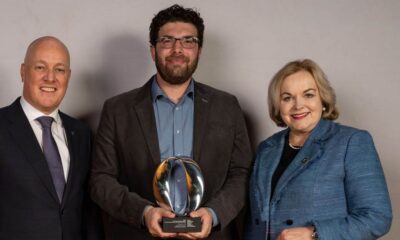Politics
Teachers Criticize New Zealand’s Overloaded History Curriculum

The proposed changes to New Zealand’s history curriculum have drawn significant criticism from educators. The New Zealand History Teachers Association (NZHTA) released a statement asserting that the draft social sciences curriculum is overcrowded, lacks focus, and disregards the input of its representatives during the writing process. This draft aims to replace the Aotearoa New Zealand Histories Curriculum, which emphasizes Māori history as a central element of New Zealand’s historical narrative.
Under the terms of the National-ACT coalition agreement, the current curriculum is targeted for “rebalancing.” The NZHTA expressed concerns that the draft includes an excessive volume of content in history and other social sciences subjects, such as geography, which exceeds what can realistically be taught in a single academic year. They highlighted the impracticality of requiring Year 7 students to study Te Tiriti o Waitangi, the 1852 Constitution Act, the French Revolution, and the Industrial Revolution simultaneously.
The association warned that this approach would likely lead to cognitive overload for both students and teachers. “The sheer amount of content included in the Social Sciences curriculum draft will lead to cognitive overload for students and teachers alike,” the statement read. It further criticized the Ministry of Education’s interpretation of a “knowledge-rich” curriculum, suggesting that it equates to merely memorizing facts rather than fostering a deeper conceptual understanding.
The NZHTA emphasized that a genuinely knowledge-rich curriculum should feature rich case studies and context, enabling students to grasp complex ideas. They noted that the draft lacks this depth, presenting an overwhelming array of facts without necessary context.
In terms of implementation, the association pointed out that the volume of material prescribed at each year level is unmanageable, given the limited time allocated to social sciences in schools. Starting in 2027, the recommended time for Years 0-8 will be one hour per week, while Years 9-10 will have three hours per week, as outlined in the newly released Te Mataiaho. The history domain alone would necessitate unprecedented levels of resourcing, raising questions about how the Ministry plans to support such extensive curricular requirements.
This criticism follows similar concerns from various arts and physical education associations regarding the draft curricula. In response, the Ministry of Education acknowledged the diverse views on the proposed changes. It stated, “The ministry will be working with subject associations, sector groups, principals, and teachers, listening to their voices and drawing on their experience to help shape the final version.”
The Ministry also encouraged public participation, inviting feedback through a formal consultation process open until April 24, 2026. This initiative aims to ensure that all perspectives are considered in a constructive manner.
As the debate over the history curriculum unfolds, the future of New Zealand’s educational approach to social sciences remains a focal point for educators, policymakers, and the community at large.
-

 Sports2 months ago
Sports2 months agoNetball New Zealand Stands Down Dame Noeline Taurua for Series
-

 Entertainment2 months ago
Entertainment2 months agoTributes Pour In for Lachlan Rofe, Reality Star, Dead at 47
-

 Entertainment3 weeks ago
Entertainment3 weeks agoNew ‘Maverick’ Chaser Joins Beat the Chasers Season Finale
-

 Sports2 months ago
Sports2 months agoSilver Ferns Legend Laura Langman Criticizes Team’s Attitude
-

 Politics4 weeks ago
Politics4 weeks agoNetball NZ Calls for Respect Amid Dame Taurua’s Standoff
-

 Entertainment2 months ago
Entertainment2 months agoKhloe Kardashian Embraces Innovative Stem Cell Therapy in Mexico
-

 World3 months ago
World3 months agoPolice Arrest Multiple Individuals During Funeral for Zain Taikato-Fox
-

 Sports2 months ago
Sports2 months agoGaël Monfils Set to Defend ASB Classic Title in January 2026
-

 Entertainment1 month ago
Entertainment1 month agoTyson Fury’s Daughter Venezuela Gets Engaged at Birthday Bash
-

 Sports1 month ago
Sports1 month agoHeather McMahan Steps Down as Ryder Cup Host After Controversy
-

 World1 week ago
World1 week agoSevere Winds Hit New Zealand, Over 100 Flights Canceled
-

 Entertainment1 month ago
Entertainment1 month agoTyson Fury’s Daughter Venezuela Gets Engaged at Birthday Bash



















